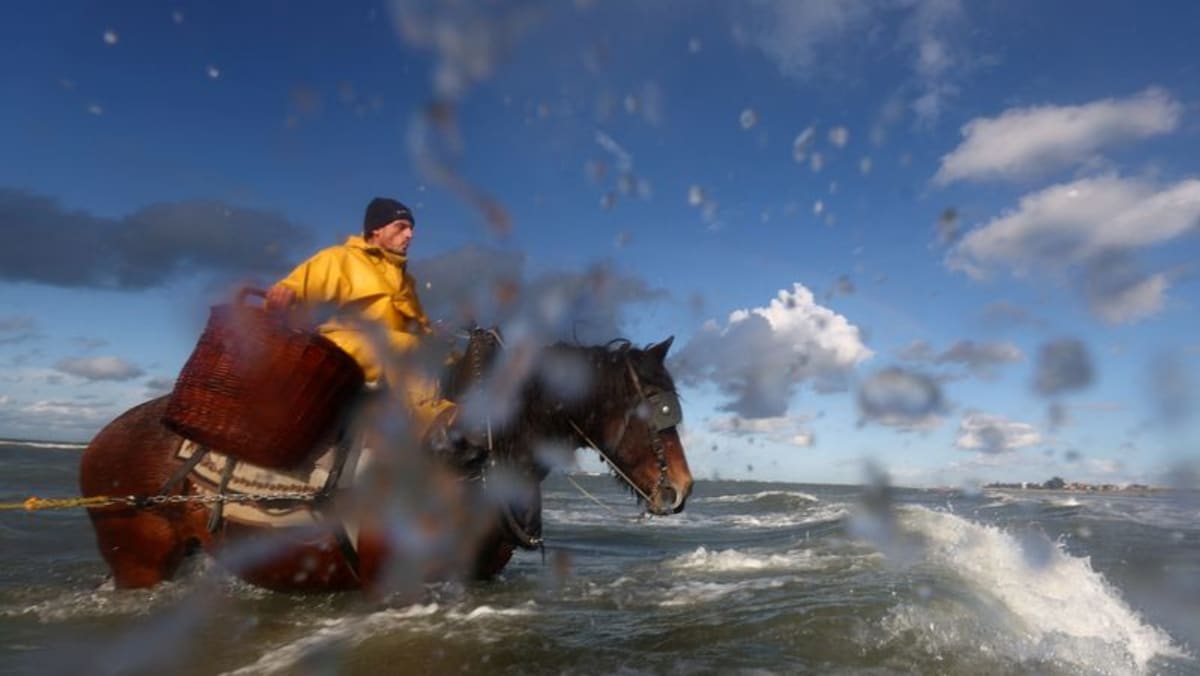BRUSSELS: On a crisp, wintry day on Belgium’s far-western coast, Gunther Vanbleu rides his draft horse down the sandy beach and into the shallow waters.
As the bright yellow of Vanbleu’s anorak stands out against the waves, under the water, his draft horse – characterised by its powerful hindquarters – pulls a chain along the sand, causing a vibration that sends shrimp jumping into an outstretched net.
The coastal village of Oostduinkerke is the last place in the world where horseback shrimp fishing is still practiced – today as a UNESCO-recognised centuries-old tradition rather than a commercial enterprise.
The fishermen and women’s proximity to the coastal waters has made them front-line witnesses of how climate change is altering the ecosystem of the North Sea.
“We have less shrimp catch than we used to. But we also have more weevers and animal species that you didn’t see here before, which come from the Atlantic as the water warms up,” Vanbleu told Reuters. Weevers are small, venomous fish that tend to burrow into the sand with just their eyes visible.
Other species have fared worse. North Sea cod populations have plummeted since the 1980s, which scientists attribute to rising sea temperatures and overfishing.
Climate change is causing unpredictable changes in fish stocks, making it harder to set fishing quotas to manage marine populations sustainably, said Hans Polet, science director of ILVO, the Belgian region of Flanders’ fisheries research institute.
“Nature does not respond anymore as we are used to. The turbulence is coming in the system,” Polet said. “Where is it heading? I don’t know. I’m worried, I’m really worried.”


